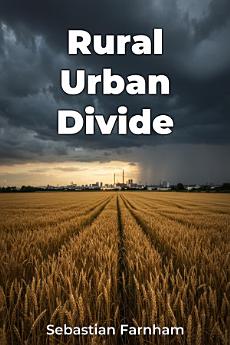Rural Urban Divide
About this ebook
The book systematically progresses across chapters, first introducing a theoretical framework to define 'urban' and 'rural' within each nation. It then analyzes the French Revolution, focusing on the antagonism between Paris and the countryside, where issues like land ownership ignited rural rebellions. Next, it examines Britain's industrialization, urbanization, and rural displacement, exploring how the Enclosure Acts fueled resentment in the countryside. Finally, it contrasts the revolutionary fervor of American coastal cities with the conservatism of agrarian communities, revealing how issues like taxation exacerbated regional tensions. By comparatively analyzing these distinct national contexts, the book offers a unique perspective that is relevant to both historians and policymakers grappling with similar issues today.







